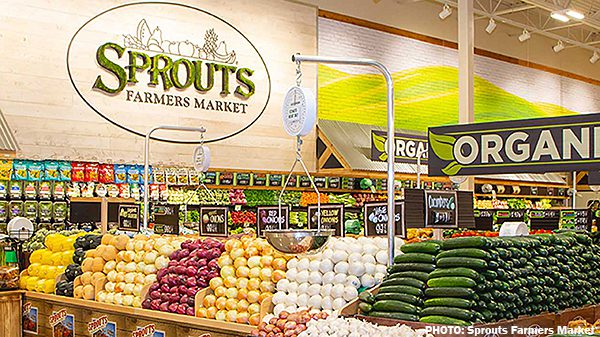Phoenix-based Sprouts Farmers Market BB #:168563 is moving forward with changes in its produce division that the company hopes will set it up for a fresher, more nimble produce shopping experience.
During the company’s third quarter earnings call held October 28, CEO Jack Sinclair specifically highlighted the importance of the company’s produce business.
“As we look to the future, our produce will be fresher, more differentiated, innovative and abide by value-oriented special buys that are not loss leaders.
Our produce strategy is only enhancing who we are: fresh produce at a great value. It is part of our DNA.”
Sinclair said the company is relying more on everyday pricing than deep discounts, and that strategy is resonating with customers.
“In fact, in the produce department, we are seeing customers buying more items on everyday retails at lower prices than historic trends, due to our investment in everyday price and fewer ad items.”
Two distribution centers are expected to open in Colorado and Florida in 2021, which will bring fresher product and enable more local and seasonal buying. The company also has undertaken a restructuring of the produce buying department.
“We created a centralized buying team focused on specific large quantity produce categories and regional buying teams that foster deep relationships with the farming community and create partnerships for unique or varietals in the future,” Sinclair said. “These meaningful farmer partnerships help us bring new and innovative products to our customers and like the early wave of new varietals before they become commoditized.”
Sinclair pointed to the Honeynut squash as an example.
“These quantities are too small for many of the chains,” he said. “However, due to our flexibility, we do not need that product in every store. Instead, it becomes a treasure hunt item found at Sprouts. This hybrid model provides us the ability to be nimble and react to pricing in the market and provides us with the agility to flex on size based on availability.”
Sprouts reported sales increases of 9.5 percent in the third quarter, and same-store sales increases of 4.2 percent. E-commerce grew 337 percent.



